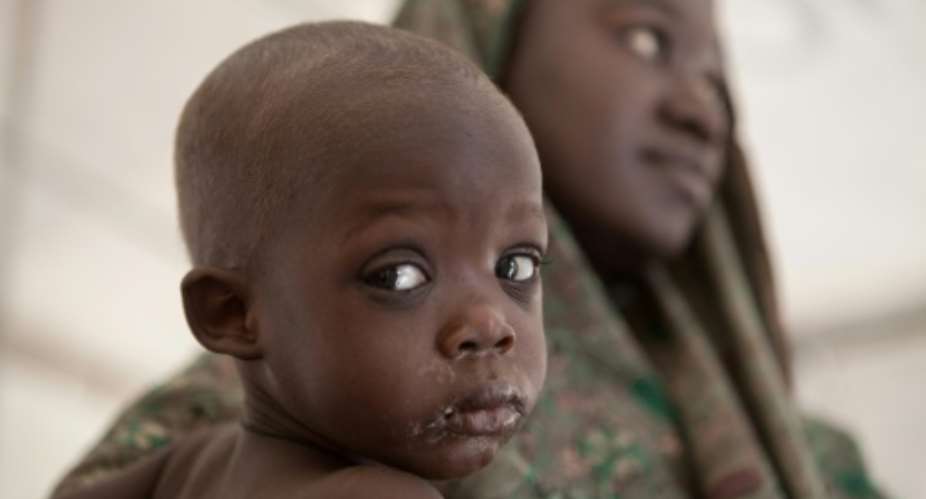Lagos (AFP) - An international conference in Oslo on Friday aims to raise $1.5 billion (1.4 billion euros) to help people affected by Boko Haram's Islamist insurgency in the Lake Chad region.
Here are five things to know about the area, which is home to what the United Nations has called "Africa's most acute crisis".
Watery border
The Lake Chad region means northeast Nigeria, the far north of Cameroon, western Chad and southeast Niger. The countries share a border on the shallow, freshwater lake.
Boko Haram, which has since 2009 fought to impose its own brand of hardline Islam on northeast Nigeria, has in recent years launched deadly raids and suicide bombings in all four countries.
Vital resource
 Lake Chad is a vital source of water and fishing
Lake Chad is a vital source of water and fishing
Lake Chad, which is believed to have once been an inland sea, is a vital source of water and fishing for those who live in and around its shores in the remote, semi-arid region.
But the conflict, which according to some estimates has killed at least 20,000 people and made more than 2.6 million others homeless, has exacerbated an already difficult situation.
Complex problem
The Lake Chad region has long been one of the most impoverished and under-developed places in the world, with poor human development indicators in areas such as education and healthcare.
Rapid population growth, the effects of climate change -- the shrinking of the lake and the creep of the Sahara desert -- and the violence has created what aid agencies call an "acute crisis".
Huge numbers
 Famine threatens Lake Chad region
Famine threatens Lake Chad region
Some 17 million people live in the most affected areas. Violence has hit fishing and farming, and forced hundreds of thousands to live in camps or with friends and relatives.
The UN says 10.7 million people are currently in need in the region; 7.1 million are "severely food insecure"; and there are "famine-like conditions" in Borno state, northeast Nigeria.
Aid money
If funding is met at the Oslo conference, the money will go towards life-saving food distribution and providing clean water, medicine, shelter and education to help rebuild lives.
If the money is not found, the UN and other agencies have made dire predictions, including that as many as 75,000 of the 515,000 children with severe acute malnutrition could die.





 We’re disappointed over gov’t’s lacklustre attitude to negotiations of our condi...
We’re disappointed over gov’t’s lacklustre attitude to negotiations of our condi...
 No more Buffer Stock as Mahama promises to decentralise SHS food supply
No more Buffer Stock as Mahama promises to decentralise SHS food supply
 NSS urges President Akufo-Addo to sign National Service Bill into law
NSS urges President Akufo-Addo to sign National Service Bill into law
 You're lying, your 7-11pm dumsor attributed to overloaded transformers is false ...
You're lying, your 7-11pm dumsor attributed to overloaded transformers is false ...
 Consult Council of State on anti-gay bill – Mahama advises Akufo-Addo
Consult Council of State on anti-gay bill – Mahama advises Akufo-Addo
 Transport Ministry has no power to determine fares – COPEC
Transport Ministry has no power to determine fares – COPEC
 Brace yourselves for more economic hardship – Prof Adei to Ghanaians
Brace yourselves for more economic hardship – Prof Adei to Ghanaians
 Any government depending on IMF is likely to fail – Grand Coalition
Any government depending on IMF is likely to fail – Grand Coalition
 Ghana risks losing premium cocoa position due to galamsey – COCOBOD laments
Ghana risks losing premium cocoa position due to galamsey – COCOBOD laments
 Akufo-Addo launches NSS policy document to tackle under-utilisation of service p...
Akufo-Addo launches NSS policy document to tackle under-utilisation of service p...
